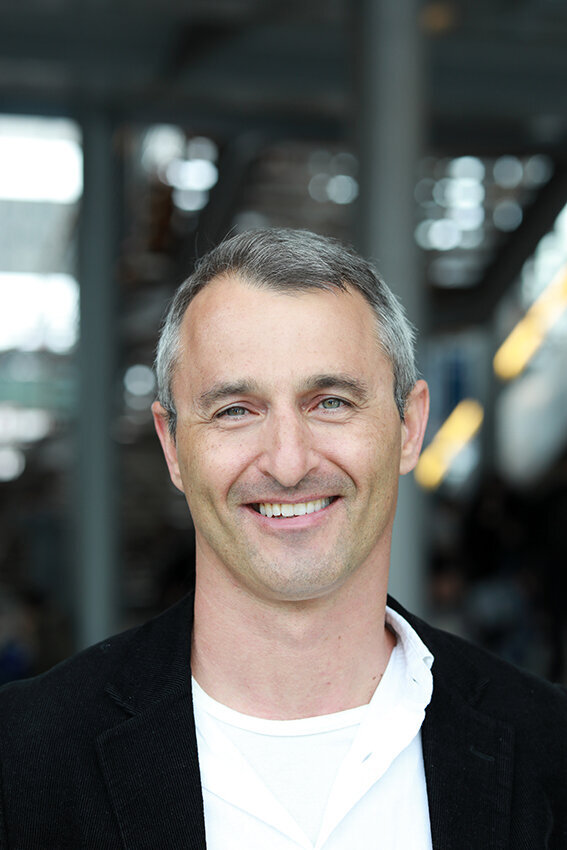
Courtesy of Eshkol Nevo
Ashley: Eshkol Nevo. You’re a writer, a novelist. That much we know. But tell us a bit more about yourself and your background.
Eshkol: I’ll begin with the time we’re living in, the pandemic time, the time of coronavirus. For me it’s been very meaningful. All the things I do in life regularly suddenly had more meaning, in a way. I’ll start talking not about the writing, even though I’ve written a lot during this time, but teaching. I’m a creative writing teacher. I run a writing workshop school called Sadnaot Habait with a partner, poet Orit Gidali.
The minute Israel went into lockdown, we decided to move all our workshops to Zoom. This was not a clearcut decision. We could have just shut down the school. We could have done it, and fire everyone, like many other firms in Israel have done. We had a late night conversation after Netanyahu’s press conference and Orit said, “"Let’s do it. Let's do it because it’s new. Because we never did this before. Because it’s proactive. It’s not surrendering to reality.”
Our estimation was that 30-40% of students would refuse and ask for their money back. That’s something we took into consideration. And then Orit developed this special method of teaching online, and taught the other teachers how to do it.
We said let’s do it because it’s new. Because we never did this before. Because it’s proactive. It’s not surrendering to reality.
In the end, out of 200 students only three left the course. The rest remained. Talking about meaning—and here’s my confession: I don’t like teaching on Zoom. There’s no sense of human kindness. There’s no feeling you get of a room, the nuances. You don’t get back from the class like you do when you see them in person.
But I must say I never felt as meaningful as I have in these two months, because you give a workshop and you see 15 people who are, generally speaking, down, depressed, anxious, and troubled. Pale. They have too much time with their families or too much time alone. They’re about to go crazy and you see it in their faces.
And then class begins and you give them writing exercises and you give them energy, and slowly, slowly they give you energy back. And amazing enough they become a group. We had a group on Tuesdays which started with one real workshop then switched to Zoom. I don’t know how it happened but they became a real group. Now they’re completely with each other, next week we’re going to do our first physical meeting after two months of lockdown, and we finished every class and they say to each other that was extremely important to them. Maybe we have less fun but you can see how writing—giving people the opportunity to write, giving people the opportunity to be creative, to connect to themselves, to connect to their imagination—you see how meaningful that is to them.
They thanked us in ways we were never thanked before. So this has been one aspect of this time.
Then writing and publishing stories. When the lockdown began I did a project with e-book publisher e-vrit. They asked if I want to do something commercially and I said let’s do it for free. I’d give three stories of mine and they’d give them for free to readers. And we did it. I took three short stories. One is about a plague of empathy. It’s a story a wrote after a visit to Panama. (I’m a Latin America freak.) I wrote the story there. And there were two other stories about love and relationships.
Now, we’re talking about 20,000 people, which in Israel is a lot, have downloaded it. They’re saying we’re in lockdown and reading your stories. And I specifically picked three of the positive, good vibes kind of stories since people are already depressed. Then the last thing I did was publish a short story called “Lemonade.” It’s another a form of feeling meaningful, which is being able to express your concerns about society, not only about yourself.
One of the phenomena we’re seeing now is the difficult economic situation of artists and independent people. So I wrote this short story about a couple who are both fired. The husband is walking around the house saying, “We have to make lemonade from these lemons.” And he has all these crazy “startup nation” ideas, like let’s do an app for virtual hugs, let’s do a course for Zoom acting, and it all fails. In the end the wife has to make a very dramatic decision, in a way to sell herself in order to maintain the economic situation in the house.
The story was published in Haaretz, then in Italy and Romania and now Spain, and maybe the US later. But it’s a story about what is happening, and about the economic stress and the effect of the pandemic on the couple. So this was also a way of being meaningful. I’m reacting to the situation.
What was really amazing was that because all the Israeli actors, directors and writers are suddenly unemployed, there was this group that decided to do a big show on Zoom, called “The Show Must Go Home.” They read the story and said they want to do an adaptation to Zoom. They took some of the best actors in Israel, and some of the best directors, and “staged” it. And it was really more extreme than my story, because when you actually see it, it touches you.
So, that was a lot of things going. It’s like the font size. I usually feel these elements of meaning on font 12 or 14. I feel that what I do is important. And it brought me back to writing in an incredible way.
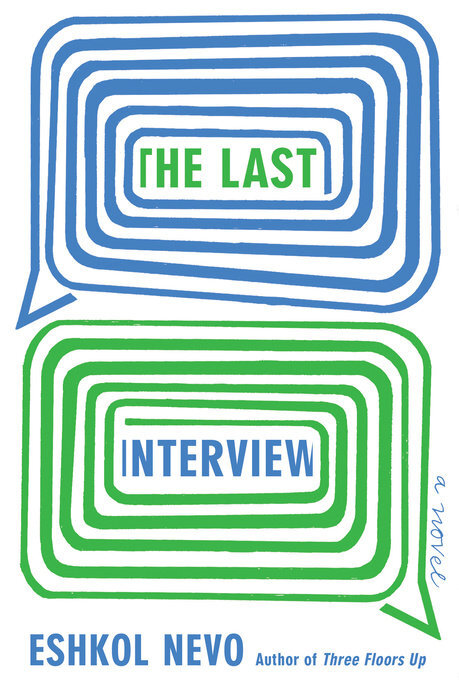
Ashley: I think the changes you’re talking about have been working their way to the surface for the last 10 or 20 years. And the core of the change is not the technology. It’s that this ability for us to be connected to one another has changed the relationship between the creative or meaningful act and how we understand compensation.
There’s been a shift where free is almost more valuable than money. Because you do something for free, like you’ve done, and you give a gift in that way and the spread of that network makes the thing you’ve created 100 or 1,000 times more valuable.
I think we’re seeing change in the dynamic between generosity and creativity, which has probably always been there. But consumer culture, and capitalist culture that we live in, has suppressed it. And now it’s coming back up.
I think of the 15 people in your class, I think, “Who are they and what are they going to do?” and I fear for their futures as writers, like I fear for my future as a writer. But then I think it’s something beyond the financial. Something that’s about that deeper connection to who they are as human beings. And when you have that thing you are intact. You can live a life that’s intact. But when you’re making however much money you’re making (or not making) and feel you’re living a lie, you cannot be intact. You become toxic.
In your case, as a writer with a lot of experience, and the relationships and ideas, you can grab this moment of meaning.
Eshkol: One of the lectures we did for free was by an editor at the biggest publishing house. And people asked about this, saying it’s hard to be a writer, and hard to get published. And she told them that writing is a way of understanding your own self. It’s about understanding your life. It’s not about being published. I don’t teach people in order to make them writers. I teach them because it helps them become better people. If they’re in a group, and they’re attentive to each other, and maybe they can also learn to be less egocentric and more graceful with other people. And if we’re talking about Israeli society, it puts them in the same room—Orthodox Jews, Arabs, rich, poor, all in the same room writing. You see you can bridge the gap, the abyss, between tribes of Israeli society.
That’s the way to build bridges. And this is why I teach creative writing—to bring people closer to themselves and to each other.
Ashley: We started with the present, so now let’s go back into the past. How did you get into this vocation/occupation/whatever it is in the first place?
Eshkol: I saw a documentary about Robin Williams, following his path, connecting the dots of his life until his tragic end. And I realized he’s responsible for my life’s work. He did two movies that, when I saw them, I knew that’s what I want to do. The first was “Dead Poets Society.” I saw that movie when I was 16 and said, “I want to be a teacher. That’s what I want to do.” And eventually I got to be a teacher.
The other movie was “The World According to Garp,” an adaptation from John Irving’s book, in which the main character is an aspiring writer. His mother is a big non-fiction writer and he’s a beginner writing short-stories on his typewriter. And, again, it looked like a wonderful life. His wife’s out teaching and he welcomes the children when they come back home. In both cases, the character had something childlike. And maybe that’s it — that if you’re a writer you can maintain the child inside yourself.
So it all happened because of Robin Williams. Though I must say that being a teacher was much more clear at 16. But being a writer in Israel, where I group up in Haifa and Jerusalem, nobody really called it a profession. Nobody really talked about it as something you can do. Being a teacher seemed like a more reasonable thing to aspire to than being a writer. So it took time. It took at least 10 years from the moment I started thinking about being a writer to the moment I actually went to a writing workshop. That was the real key moment.
It took at least 10 years from the moment I started thinking about being a writer to the moment I actually went to a writing workshop. That was the real key moment.
Actually there was one more experience, which happened in South America, where my writing really started. I was backpacking in South America and had a girlfriend (who later became my wife) and I wanted to write her letters. The idea was that if I wrote her enough letters, I’d be able to maintain the relationship. Because it was a long time to be away, and she was a very attractive woman, and still is, and I thought I have to find a way to keep it alive.
So I was writing to her a lot. And if you’ve been to Latin American, you know sometimes nothing happens. You can wait two days for a bus. So I started inventing things. Sometimes I would tell myself, “Now it’s the fiction part of the letter,” and I’d switch into fiction. And I wouldn’t tell her. And that’s when I realized I enjoy fiction more than non-fiction. I enjoy lying. So I kind of came back from the backpacking trip with the decision that I want to write a book, that was in 1994, 1995.
It didn’t work out. I had this huge computer and tried to write these stories and nothing came out. I had to go to a writing workshop and later on I started developing my stories.
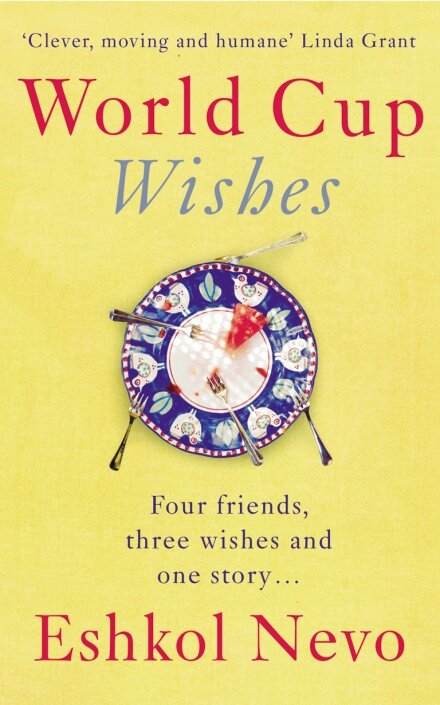
Ashley: I think that’s a point where every writer, every creative person, every person in general gets—they hit the wall. They want to do the thing, pursue the dream, so they try and it doesn’t work.
And it’s a kind of fork. A lot of people go down the road of saying, “I tried. It didn’t work. Onto the thing thatI never really wanted to do but I’m going to just do it anyway.” But then some people say, “I’m going to try it again.” It’s like the famous Beckett quote “Every tried. Ever failed. Try again. Fail again. Fail better.” In your case, what was it that got you back to do it again, and to try a different way?
Eshkol: I was not defining it in terms of success. I just wanted to write. There was something inside of me that needed to be expressed. Since I was a child. If you ask my mother, she’ll tell you I tried to be a musician. I tried to be a painter. I went to study acting before I was in the army. I was always looking for some kind of channel to express myself.
When I went to the workshop it wasn’t because I wanted to be a writer, or publish a book. I just wanted to write. To let it out. And when I sent my first manuscript to publishing houses, the answer was no. For quite a while. I got 10 no’s before my first yes. And, again, if you ask me what kept me going after getting all these no’s, I didn’t feel this amazing self-confidence. I just felt like I wanted to let it out.
But you get stuck against all kinds of walls. You get writer’s block. Sometimes you get feedback that really shakes you. You don’t know what to do with it. I just gave my new manuscript to my editor. The book is made up of three parts. And one of the parts she completely disapproved, or disagreed with basic elements of the plot. And I don’t know what to do. I think I’m right. (Though my wife has to be the one to tell me whether I am or not.)
But sometimes you get confused from the feedback or reactions you get. There are a lot of hurdles. Though some books, like Three Floors Up, are easy; it just wrote itself. Though the book before, Neuland, was much more problematic. It took eight years of drafts. So you never know. It’s different every time.
But I do think I’m less intimidated now when I face a block. I know that if I can’t solve it I can go another way.I can write something else - a short story, a poem, a script. This is what I try to do when I have a block. And in that sense I’m not orthodox. I do short stories, I do poems, I do theatre. I work with musicians a lot.
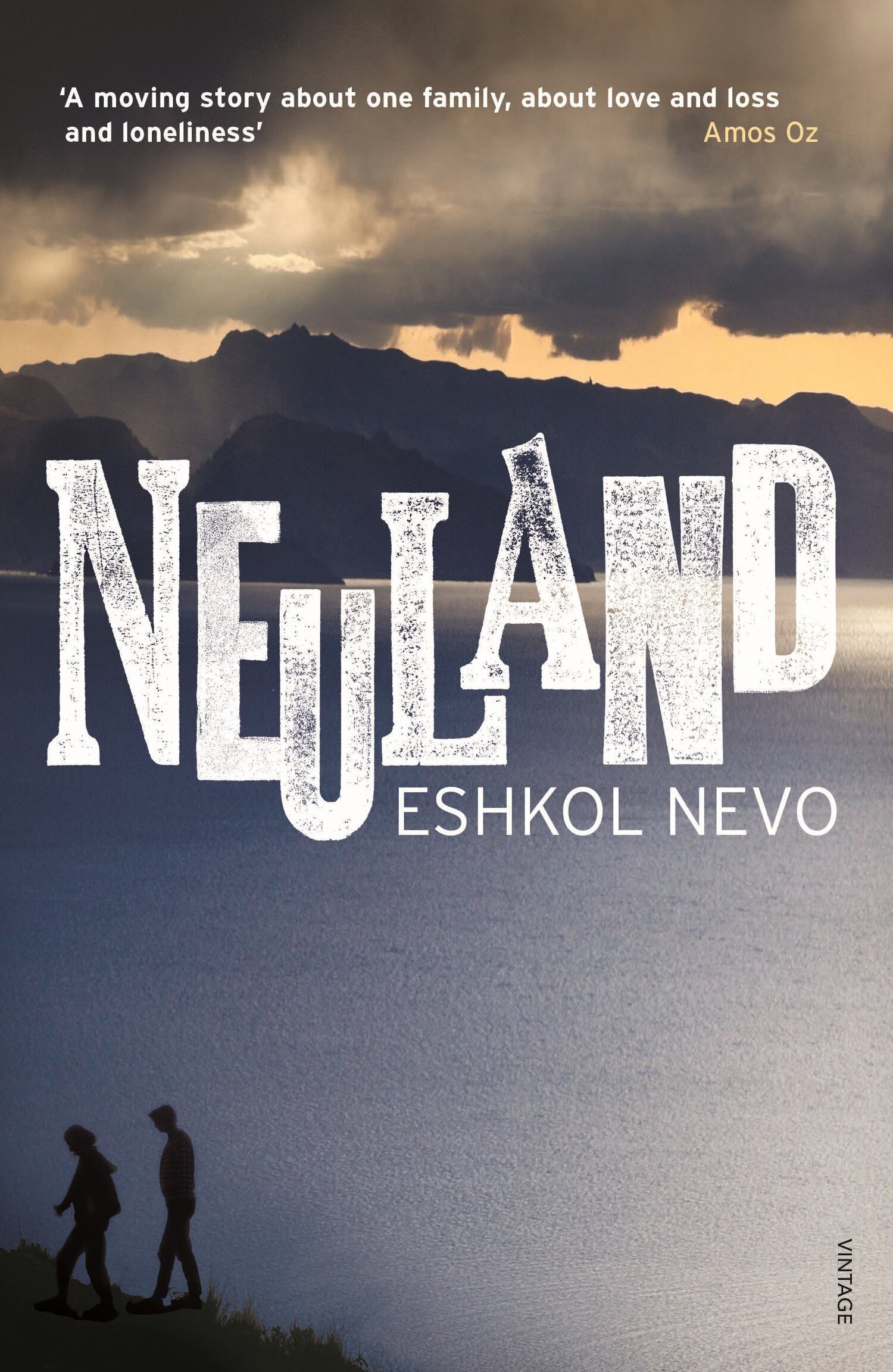
“It took eight years of drafts.”
Ashley: This touches back on something we said earlier about the change in society and the way we are able to connect with others. You don’t have to depend on a gatekeeper anymore for other people to consume your work. That process of passing through the gates can be devastating for a lot of people. But that time when the gatekeepers can say, “No, no, no,” that would have been enough for a lot of people to give up. Now, though, you don’t need that.
That’s really where we are today—globally, socially and culturally: people can just feel free to create. And especially with coronavirus, that’s accelerating the shift.
Eshkol: You know what the best thing that happened to me creatively is that I published a book called The Last Interview. And usually after I publish a book I’m devastated. I can’t do anything. I’m empty. I’m exhausted from all the publicity. But then I got an email from the editor of Vanity Fair Italy offering me a project to write a short story every week of 650-700 words. Every week it would be based on an Italian word. And collectively the series would be called The Dictionary of Desire.
Usually, I don’t do this kind of thing. But I said, “Fuck it, let’s try.” We ended up with a column that ran from A to Z. It was so much fun and it was such a success that we started again from A to Z this time using words related to geography. The series was called Geography of Emotions. By the end of the year I had about 50 short stories. Not all were good, I must say. But out of 50 I had about 20-25 stories which were good.
Usually, I don’t do this kind of thing. But I said, ‘Fuck it, let’s try.
But, as you said, because it was in Italian, I felt I could write about anything I want without taking into consideration how my family is going to feel about it, or what people will say. It was just for fun. Now, at the end of May, and only in Italy, there’s going to be a book of these stories.
Ashley: I think it’s the idea of play. There’s got to be a sense of play. That makes me think of the book I just finished, which didn’t have much sense of play. It was mostly agony all the way. Which makes me nervous, since can an agonized book really be enjoyable to read?
Eshkol: The reader doesn’t know.
Ashley: I hope not. But I feel the sense of play with the stories I’ve been writing, and to see that the little spark catches a person, and they say “Wow.” The way they caught that story is so different than how I thought about it is a great thing to experience.
Eshkol: It’s really hard to maintain a sense of play in a book you’ve been working on for years. It’s like spin doctors in politics. You’ve got to be your own spin doctor. You have to trick yourself, in order to convince yourself that this is still fresh. How can I convince myself this book I’ve been working on for eight years is still fresh. I tried everything. I tried letting the characters send emails to each other and writing only their emails for three months just to get that freshness again. It’s a real psychological challenge.
You’ve got to be your own spin doctor. You have to trick yourself, in order to convince yourself the material is still fresh.
Ashley: I think it’s about being dispassionate, a little detached. I heard someone say at some point that part of writing is understanding the thing you’re doing is the most important thing that you as an individual can do and also embracing the idea that it’s completely insignificant. You have to hold those ideas at the same time.
Eshkol: I just had a conversation with a friend who’s also a writer. He’s very worried about publishing his new book because it’s very personal and he feels very exposed. And I told him that we had the same conversation but in reverse roles when I was about to publish The Last Interview. And I sat down with him and I quoted him, saying, “Do you remember what you told me years ago? You told me you think your book will be that important? It’s not. People will not be really interested in what happened or didn’t happen. They have their own lives. So relax, man. That’s what he told me three years ago. And that’s what I told him now. Don’t panic, because in the end it’s literature.
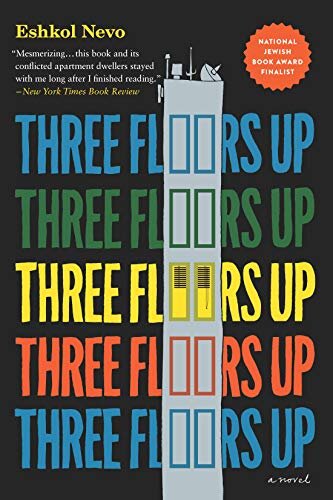
“It wrote itself.”
Ashley: It goes both ways, because sometimes you think it’s going to create an earthquake but it’s barely a squeak. Then, on the other hand, you read these books that have had a profound effect, or created scandal, and you see the degree of unpredictability. You don’t know the outcome. You don’t actually know what the outcome might be. And that’s part of living in the time of corona—you have to face the reality that you just don’t know. You have to be comfortable, or even uncomfortable, in that uncertainty. And that’s I think what writers learn over time. You have to learn to play in the uncertainty. And if you can do that you’ll be fulfilled as a creative person by the joy of creating and playing in the uncertainty.
Eshkol: There’s even a definition for that: tolerance of ambiguity. In my psychological studies there was a piece about what is required to be a creative person. And it’s tolerance of ambiguity. Sometimes you just have to be okay with the fact that you’re not going to solve the problem now. Most people want that sense of security. They want the decision. But often you just have to be okay with the idea that it takes time and patience.
Ashley: On that note, Eshkol Nevo thank you for joining us on The Meaning Creators.
Eshkol: Thank you for having me!


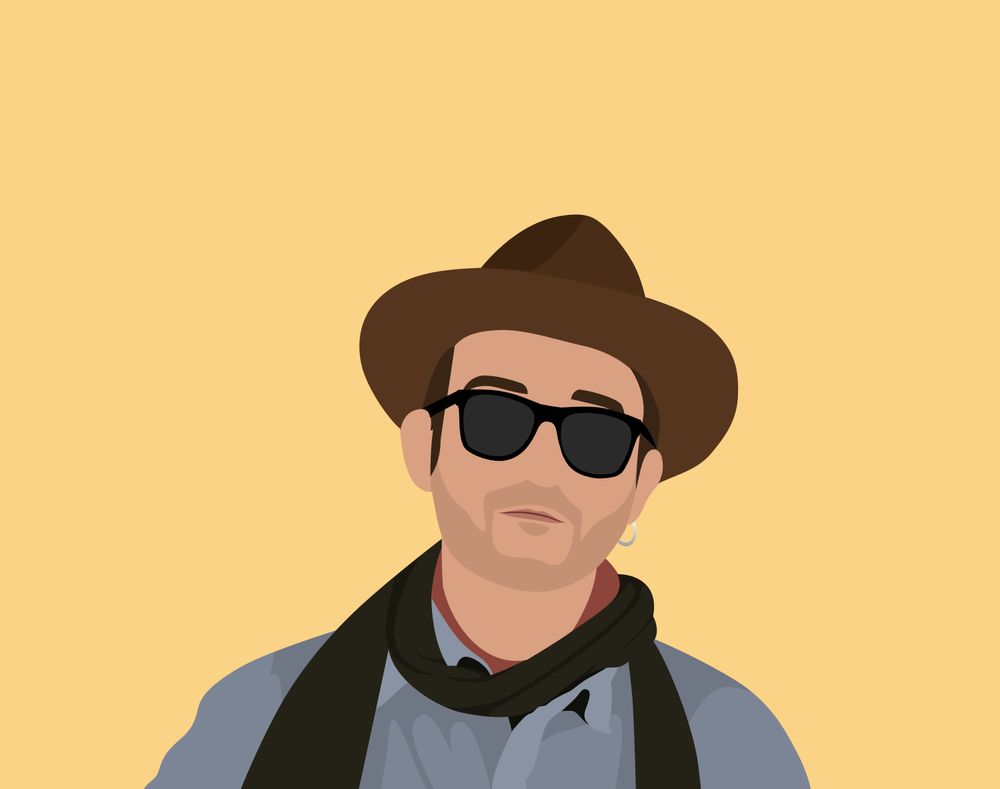

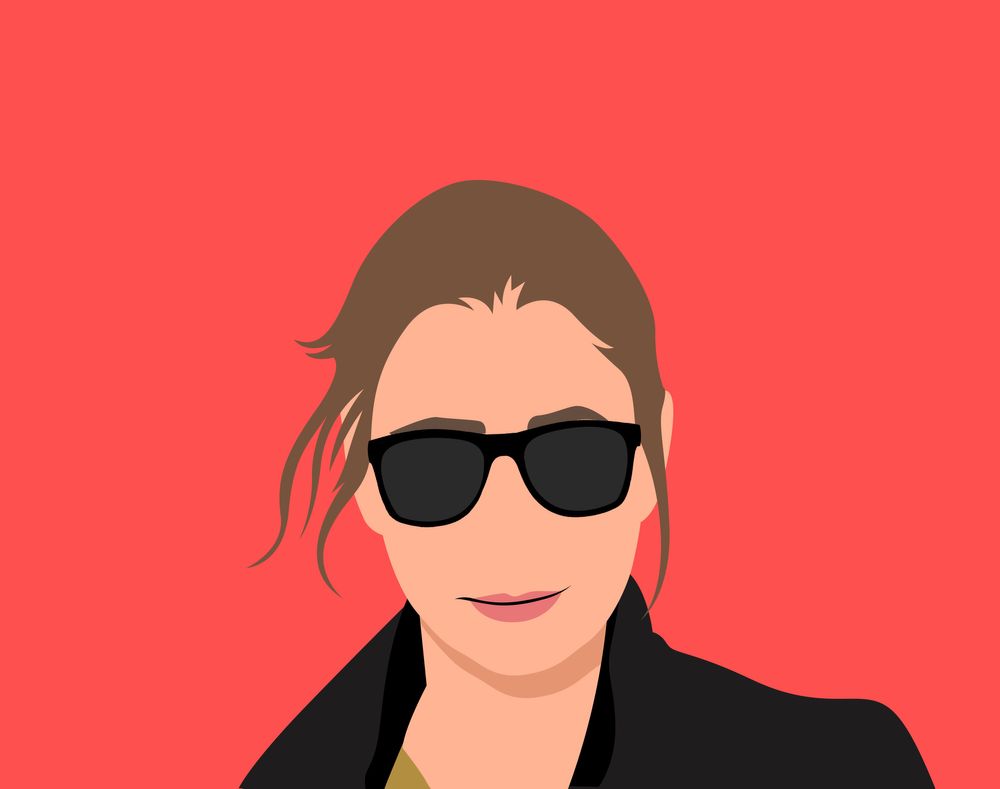
Join the conversation.